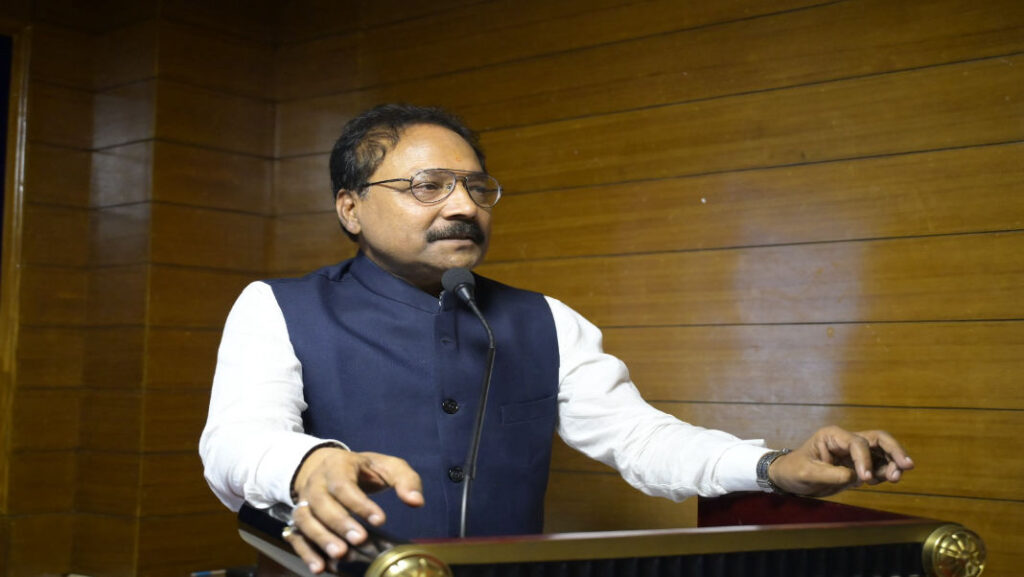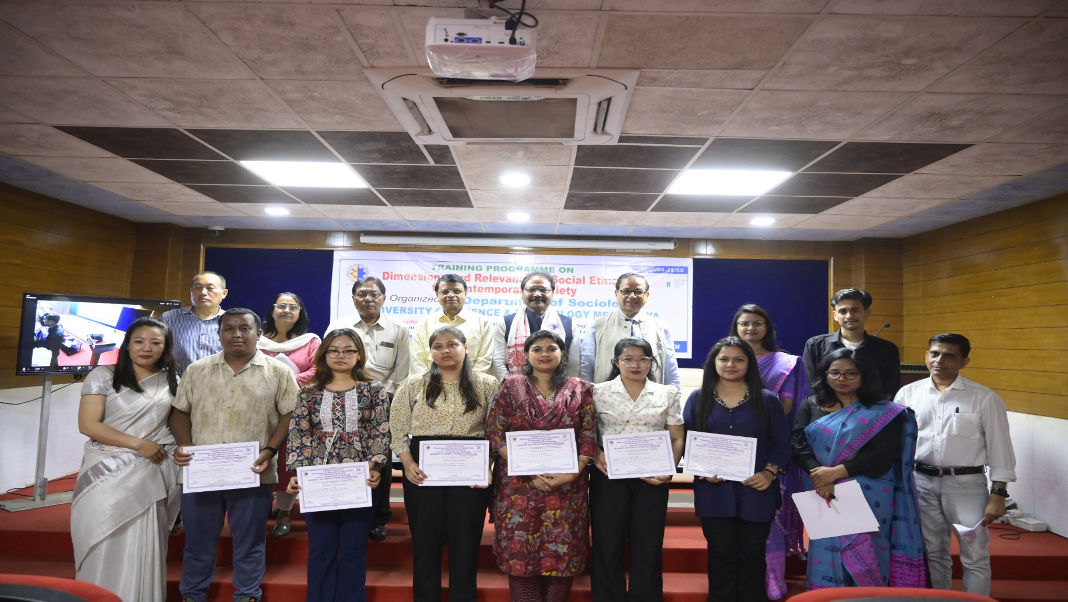Guwahati, April 24: The Department of Sociology, University of Science and Technology Meghalaya (USTM), in collaboration with RC-30: Digital Sociology (Indian Sociological Society) and the Forum for Learning and Action with Innovation and Rigor (FLAIR), New Delhi, organised a two-day training program titled “Dimensions and Relevance of Social Ethics for Contemporary Society” on April 22-23.
The inaugural session featured distinguished guests, including Prof. Maitrayee Chaudhuri, President of the Indian Sociological Society; Prof. Abdul Matin, Convenor of RC-30-ISS and President of FLAIR; Prof. Sambit Mallick, Department of Humanities and Social Science, IIT Guwahati; Prof. G.D. Sharma, Hon’ble Vice Chancellor of USTM; Prof. R.K. Sharma, Advisor at USTM; and Prof. Thagiram Gogoi, Dean of the School of Social Sciences and Humanities at USTM, among others.

The training program was conducted by various national and international resource persons, including Dr. Paul Streumer from the Netherlands, Md. Habibur Rehman from Bangladesh, Prof. B.P. Sahu, Dean of the Department of Adult and Continuing Education at NEHU, Meghalaya; Prof. Nirakar Mallick from the Department of Sociology at Assam University, Silchar; and Prof. Subhas Chandra Roy, former Head and Dean of Instruction at the North East Regional Institute of Education (NERIE), NCERT, Meghalaya.

Prof. Abdul Matin delivered the keynote address on the importance of ethics. The thematic principle of his address was firmly centered in the digital sphere, concerning the ethics of AI in the contemporary world. In her address, Prof. Maitrayee Choudhuri emphasized how ethics is not constant and it varies across time and space. Prof. Sambit Mallick spoke about the importance of social ethics.

The topics covered in the program included the application of social ethics, social work ethics for youth leadership, the development of the code of ethics for social work professionals, professional excellence and social responsibility, and lessons drawn from the history of an Indian tribe in Jharkhand, as well as ethical considerations from an Indian perspective. The training program aimed to encourage the integration of moral principles into decision-making processes.
The initiative of the training programme was to seek participants to contribute to a more ethical, responsible, and compassionate society. The training program also served as a platform for sharing ideas, experiences, and best practices while creating collective discussion and debate opportunities.
Also Read: Invasion of Ferutopi: The Shia uprising in Cachar
Also Watch
Find latest news from every corner of Northeast India at hubnetwork.in, your online source for breaking news, video coverage.
Also, Follow us on-
Twitter-twitter.com/nemediahub
Youtube channel- www.youtube.com/@NortheastMediaHub2020
Instagram- www.instagram.com/ne_media_hub
Download our app from playstore – Northeast Media Hub





